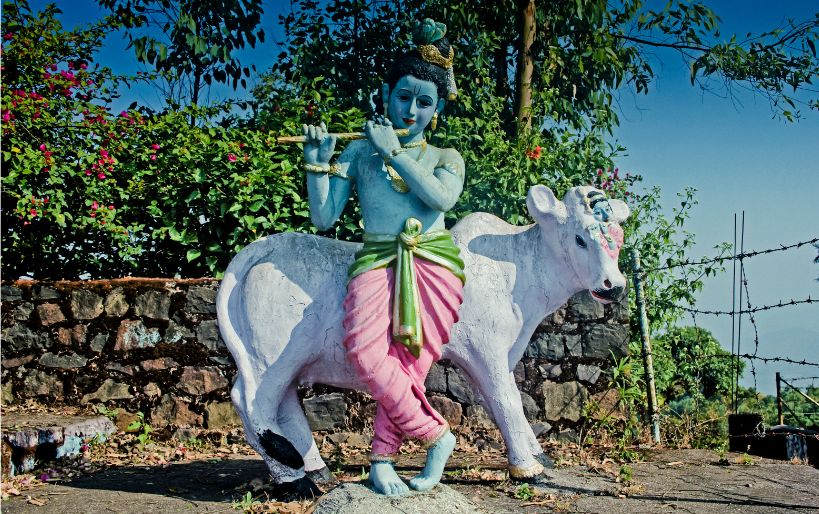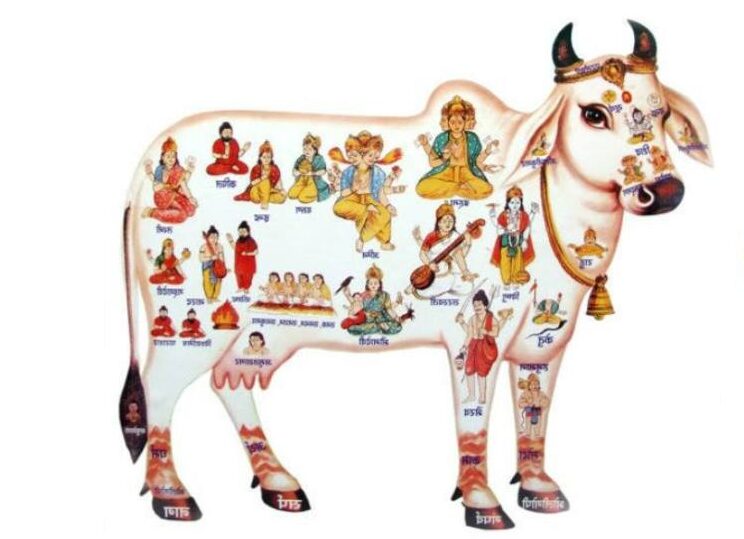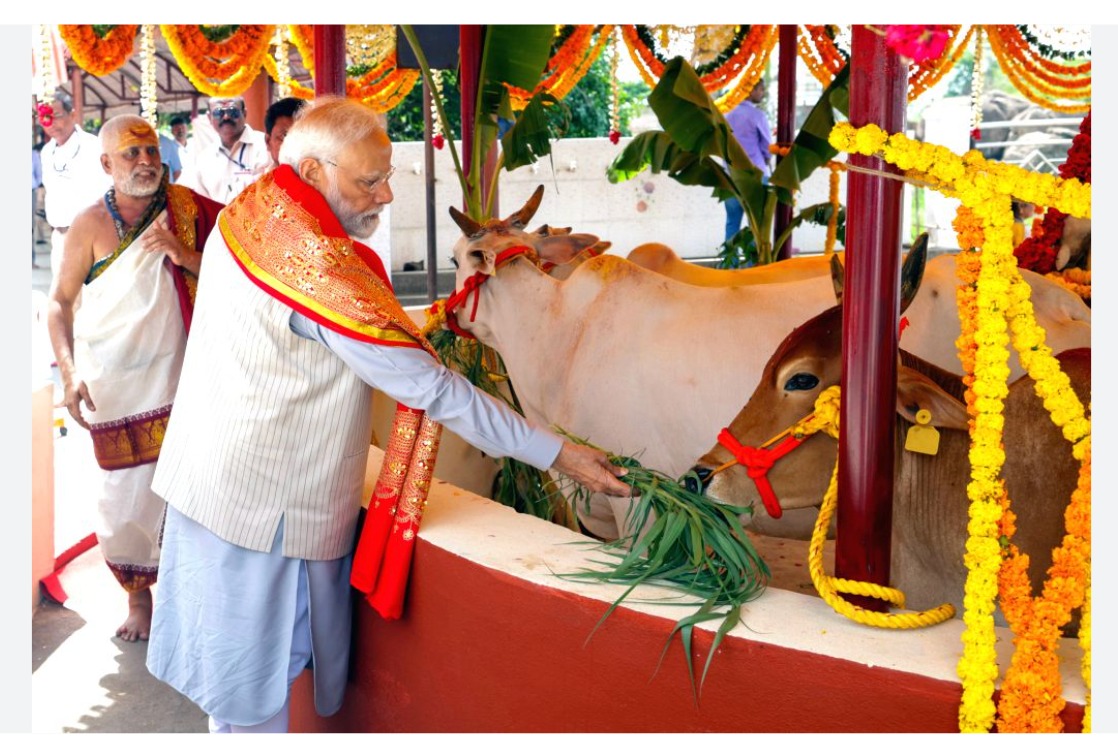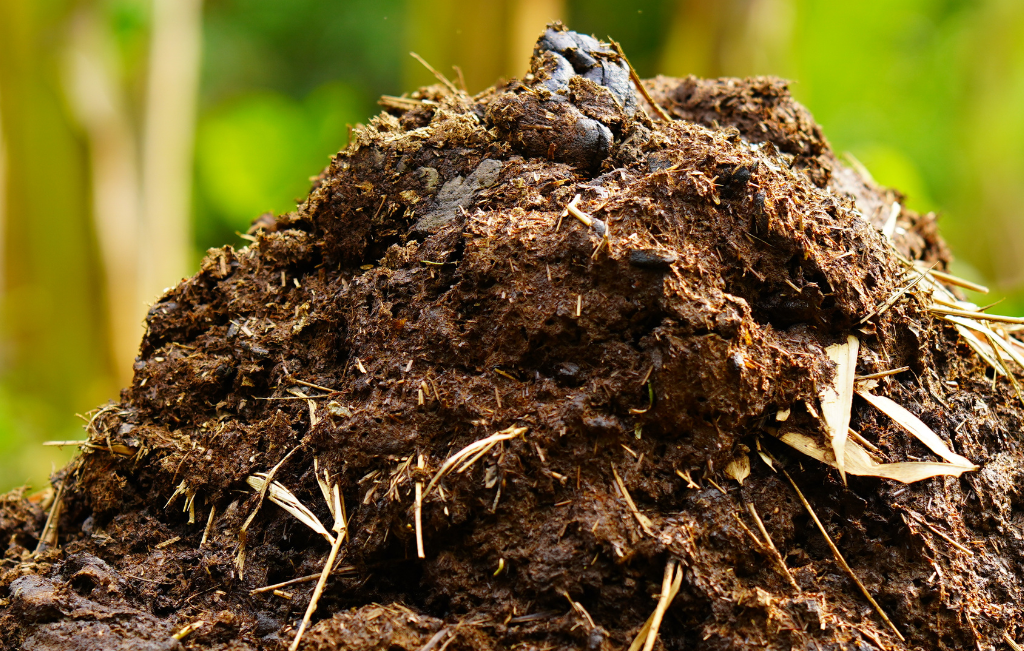The significance of cows in India is deeply ingrained in the country’s cultural fabric and traditions, making them an integral part of the nation’s identity. In Hinduism, cows are considered sacred animals and are revered as a symbol of motherhood, fertility, and abundance. They are associated with several deities like Lord Krishna, who is often depicted as a cowherd. The cow is considered a gentle, giving, and nurturing animal, and its milk is considered pure and used in various religious rituals. Cows are often associated with the goddess Kamadhenu, who is believed to grant wishes and is a symbol of prosperity, purity, and abundance. Many Hindus believe that cows embody the divine and should be treated with respect and care. In Ayurveda, the traditional Indian system of medicine, cow products like ghee (clarified butter) and urine are believed to have medicinal properties and are used in various treatments and therapies. Cows, being gentle creatures, have become a symbol of non-violence and compassion in Indian culture. Cow dung is used as a valuable organic fertilizer in traditional farming practices. It enriches the soil, improves crop yield, and helps maintain soil fertility. Cows are an integral part of many Indian festivals and rituals. For example, during festivals like Gopashtami and Govardhan Puja, cows are worshipped and honored. Owning cows has been traditionally considered a sign of prosperity and wealth in rural communities. Cows are often donated or gifted during religious ceremonies and festivals, and they hold a place of honor in various rituals and traditions.

Association of cows with deities like Lord Krishna and Kamadhenu.

Ayurvedic beliefs about cow products and their healing properties.

Cows significance in Indian culture, religious beliefs, and traditions.

Cows presence in Indian festivals, rituals, and community prosperity.

Cows' role in organic farming and soil enrichment with dung.